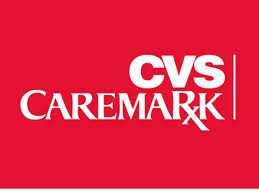 Top Class Action Lawsuits
Top Class Action Lawsuits
Does the term “Rate Lock Fees“ mean anything to you? Well, read on. Wells Fargo is facing a consumer banking class action lawsuit over charging improper mortgage-related fees to its customers. Specifically, the Wells Fargo mortgage loan lawsuit claims that home loan borrowers were being charged extra fees when their applications were delayed, even if the bank was the cause of the delay. Your first clue.
Filed in federal court in San Francisco, the lawsuit centers around fees known as rate-lock extension fees. These fees are charged, according to the allegations, when a borrower applies for a mortgage for which the lender promises a set interest rate, as long as the loan is approved within a certain time period, typically between 30 and 45 days. If the loan takes longer to approve, the borrower must pay a fee to keep the previously promised rate. Seriously.
As with most lenders, Wells Fargo is supposed to waive the fee if it is responsible for holdups. Borrowers only pay the fee if they are responsible for the delays by, for instance, failing to submit documents on time.
According to the allegations in the lawsuit, Victor Muniz, a Las Vegas security guard, was charged a rate lock extension fee by Wells Fargo of $287.50, despite the delays in his mortgage approval being caused by the bank and despite Muniz being told by a Wells Fargo banker that he would not have to pay the fee.
Muniz asserts that Wells Fargo was responsible for the delays approving his application partially because they hired an appraiser who was out of the country while Muniz’s mortgage application was being processed. Muniz has brought the suit on behalf of himself and all other borrowers who may have paid improper fees.
Top Settlements
TD Bank Penny Arcade Update… There’s a settlement – it’s received preliminary approval. So get your pencils out – time to file a claim. Of course, TD Bank denies any liability or wrongdoing, and the Court has not decided which side is right. However, to settle the case and avoid the costs and risks of litigation, TD Bank has agreed to a settlement.
Here’s the skinny: consumers who used a Penny Arcade machine at a TD Bank store between April 11, 2010 and July 12, 2017, may be entitled to a cash payment from the class action settlement.
Reportedly, TD Bank will calculate the amount each TD Bank customer would receive by using its records to determine the amount of Penny Arcade usage by those consumers. TD would multiply that sum by 0.26 percent to determine a customer’s distribution, or payment.
If you conducted a Penny Arcade transaction during the Class Period at a time when you did not hold a TD Bank Account, you must submit a Claim Form by October 27, 2017 to be eligible to receive a Settlement Payment based on such transaction(s).
If you conducted a Penny Arcade transaction during the Class Period at a time when you held a TD Bank checking, savings, personal loan, or business loan account (“Account”), you do not have to do anything to receive any Settlement Payment to which you are entitled.
Got Wild Planet and Sustainable Seas tins of Tuna? Well, heads up folks – a settlement has been reached in a consumer fraud class action lawsuit pending against Wild Planet and Sustainable Seas alleging their tinned tuna products were deliberately under-filled to below the 5-ounce weight stated on the product labels.
Under terms of the tuna settlement, Wild Planet will create a settlement fund of $1.7 million, part of which will be distributed to Class Members eligible to claim benefits, which include all US residents who between November 5, 2011 and May 12, 2017 who purchased a can of tuna under the Wild Planet or Sustainable Seas brands.
Eligible class members can claim a cash payment of up to $29. This amount could be lower depending on the number of timely and valid claims received. The settlement payout could also be reduced if the cost of the claims administration is more than $350,000.
The case is Ehder Soto v. Wild Planet Foods Inc., Case No. 5:15-cv-05082, and Heney Shihad v. Wild Planet Foods Inc., Case No. 1:16-cv-01478, in the U.S. District Court for the Northern District of California.
Ok – That’s a wrap for this week. See you at the bar!

 Top Class Action Lawsuits
Top Class Action Lawsuits  Top Class Action Lawsuits
Top Class Action Lawsuits  Top Class Action Lawsuits
Top Class Action Lawsuits  Top Class Action Lawsuits
Top Class Action Lawsuits  Top Class Action Lawsuits
Top Class Action Lawsuits Top Class Action Lawsuits
Top Class Action Lawsuits  Top Class Action Lawsuits
Top Class Action Lawsuits  Top Class Action Lawsuits
Top Class Action Lawsuits